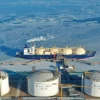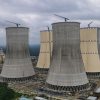Iran’s natural gas industry increasingly prioritizes technological innovation to enhance extraction efficiency, processing capabilities, and infrastructure reliability. Technology plays a pivotal role in overcoming challenges such as sanctions, aging infrastructure, and maximizing reservoir productivity.
Recent technological developments in Iran have focused on advanced gas recovery methods, including enhanced recovery technologies and improved reservoir management systems. These technologies increase efficiency and extend the productive life of gas fields, vital for maintaining production rates and reserve sustainability.
Iran has invested in domestic research and development programs, encouraging collaboration between universities, research institutes, and industry stakeholders to foster technological advancements. Areas of focus include pipeline safety, leak detection systems, corrosion-resistant materials, and automation technologies.
Pipeline network modernization constitutes another critical area of innovation, incorporating smart grids, real-time monitoring, and automated control systems to enhance operational efficiency and reliability. These advances significantly reduce leakage, operational risks, and maintenance costs.
Despite international restrictions, Iranian companies have sought to localize technology through domestic engineering firms, reducing dependency on imported technologies. This self-reliance approach fosters innovation, albeit slower compared to global standards.
In the long term, access to international technology and investments could significantly enhance productivity and operational efficiency, accelerating Iran’s positioning in global markets. Emerging technologies like digital twins, artificial intelligence, and blockchain present future opportunities for improved efficiency and reduced environmental impact.
In conclusion, technological innovation represents a crucial driver for Iran’s gas industry, critical for maximizing productivity, operational efficiency, and competitive positioning on the international stage.






